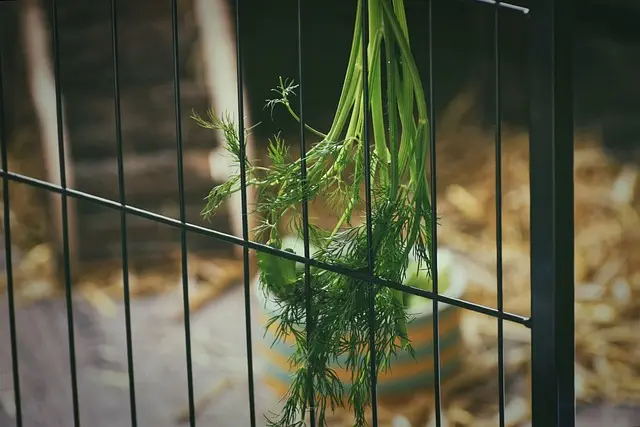St. John's Wort and Kratom, both rooted in traditional medicine, have been examined for their potential to improve mood, with each containing unique chemical compounds that engage the brain's neurotransmitter systems. St. John's Wort contains hypericin, which affects serotonin and may help with mild to moderate depression, similar to conventional antidepressants. Kratom herbs and botanicals contain alkaloids like mitragynine and 7-hydroxymitragynine, which influence opioid receptors and neurotransmitter levels, potentially offering mood enhancement. The growing interest in these natural alternatives is tempered by the need for caution; users are encouraged to seek medical advice when incorporating Kratom into their health regimen due to its complex interactions with brain chemistry and varying regulatory statuses. Both substances should be used with careful consideration of personalized medical guidance, as their efficacy and safety profiles require further study. The therapeutic potential of St. John's Wort and Kratom in mood elevation is an area of ongoing research, emphasizing the importance of professional consultation when considering Kratom herbs and botanicals for mental health support.
Exploring the natural pathways to mood elevation, this article delves into the scientifically intriguing effects of St. John’s Wort and Kratom herbs and botanicals. Uncovering the mechanisms behind these natural substances, we examine their potential in promoting emotional well-being. From understanding how St. John’s Wort interacts with mood elevation to exploring the role of Kratom in mood regulation, this piece offers a comprehensive look at the botanical solutions that could complement conventional therapies for better mental health outcomes. Join us as we navigate the complex relationship between these natural compounds and our emotional landscape.
- Unraveling the Effects of St. John's Wort on Mood Elevation: A Botanical Approach
- Kratom Herbs and Botanicals: Exploring Their Role in Mood Regulation
- Balancing Act: How St. John's Wort and Kratom Interact for Emotional Well-being
Unraveling the Effects of St. John's Wort on Mood Elevation: A Botanical Approach

St. John’s Wort, a botanical with a long history of use in traditional medicine, has garnered attention for its potential effects on mood elevation. This herbal remedy contains hypericin and various other hypericum compounds, which are believed to interact with neurotransmitters in the brain, particularly serotonin, a key neurotransmitter involved in regulating mood. Clinical studies have demonstrated that St. John’s Wort may offer similar benefits to those provided by conventional antidepressants for some individuals experiencing mild to moderate depression. Its efficacy in alleviating depressive symptoms has been attributed to its unique chemical composition, which differentiates it from other mood-regulating substances.
In parallel, Kratom, another herb of botanical origin, is increasingly being explored for its mood-enhancing properties. The active compounds in Kratom, mitragynine and 7-hydroxymitragynine, are known to influence the brain’s opioid receptors and neurotransmitter systems, including those that affect mood. While traditionally used for pain relief and energy enhancement, there is a growing body of anecdotal and preliminary research suggesting its potential as a natural mood elevator. The botanical approach to mood elevation, which includes St. John’s Wort and Kratom among others, offers a compelling alternative to synthetic medications, with the added benefit of potentially fewer side effects. However, it is crucial for individuals to consult healthcare professionals before incorporating these herbs into their wellness regimen, given the complex interplay between botanicals and individual physiology.
Kratom Herbs and Botanicals: Exploring Their Role in Mood Regulation

Kratom, a tropical deciduous tree native to Southeast Asia, has long been recognized in traditional medicine for its various therapeutic properties. The herb’s botanical constituents, primarily alkaloids such as mitragynine and 7-hydroxymitragynine, are believed to influence mood regulation due to their interaction with the body’s opioid receptors. Emerging research suggests that kratom may provide mood-elevating effects, which can be beneficial for individuals experiencing mild depressive symptoms or stress. These effects are thought to stem from the alkaloids’ ability to modulate neurotransmitter levels, particularly serotonin and dopamine, which play pivotal roles in mood regulation. The use of kratom herbs and botanicals must be approached with caution, however, as their efficacy and safety are subjects of ongoing scientific investigation, and regulatory status varies across different countries. Users considering kratom as a supplement for mood elevation should seek guidance from healthcare professionals to navigate potential benefits and risks associated with its use.
Furthermore, the role of kratom in mood regulation is an area of active research. Preclinical studies have demonstrated that kratom’s alkaloids may exert antidepressant-like effects by enhancing neurotransmitter activity. The herb’s potential in this domain is intriguing, though it is not a substitute for conventional antidepressants or psychological therapies. As such, the integration of kratom into holistic wellness strategies should be carefully considered and monitored to ensure its responsible use. The botanical’s complex interplay with brain chemistry underscores the need for further scientific scrutiny to fully understand its implications for mood elevation and overall mental health.
Balancing Act: How St. John's Wort and Kratom Interact for Emotional Well-being

St. John’s Wort and Kratom are both naturally occurring substances that have been used historically for their therapeutic properties, particularly in the realm of mood regulation. St. John’s Wort, a herbal remedy well-documented for its antidepressant effects, interacts with neurotransmitters such as serotonin, norepinephrine, and dopamine to elevate one’s mood. On the other hand, Kratom herbs and botanicals are known for their alkaloid content, which can influence the opioid receptors in the brain, providing pain relief and euphoric effects that might also contribute to emotional well-being.
The confluence of St. John’s Wort and Kratom presents a complex interaction that must be approached with caution. When combined, these substances may amplify each other’s mood-elevating effects due to their shared influence on neurotransmitter systems. However, it is crucial for individuals considering this combination to be aware of the potential for increased side effects and the risk of serotonin syndrome, a potentially dangerous condition resulting from excess serotonin in the body. The balance between these two substances can be delicate, and their combined impact on an individual’s mood and overall health requires careful monitoring and professional guidance. Users should consult healthcare providers before integrating Kratom herbs and botanicals with St. John’s Wort to ensure safe and effective use for emotional well-being.
St. John’s Wort and Kratom herbs and botanicals have both been subjects of interest in the realm of mood elevation and emotional well-being. The article has explored their individual effects and potential synergistic interactions when combined, providing a comprehensive overview of their roles in mood regulation. While both natural remedies offer promising avenues for improving emotional health, it is imperative to approach their use with caution and informed guidance due to their complex interactions within the body. Users are advised to consult healthcare professionals before integrating these botanicals into their wellness routine, ensuring a balanced and safe path toward better mental health.






